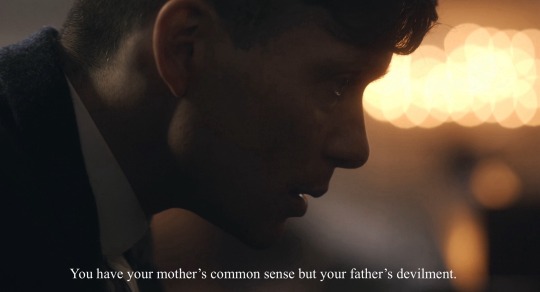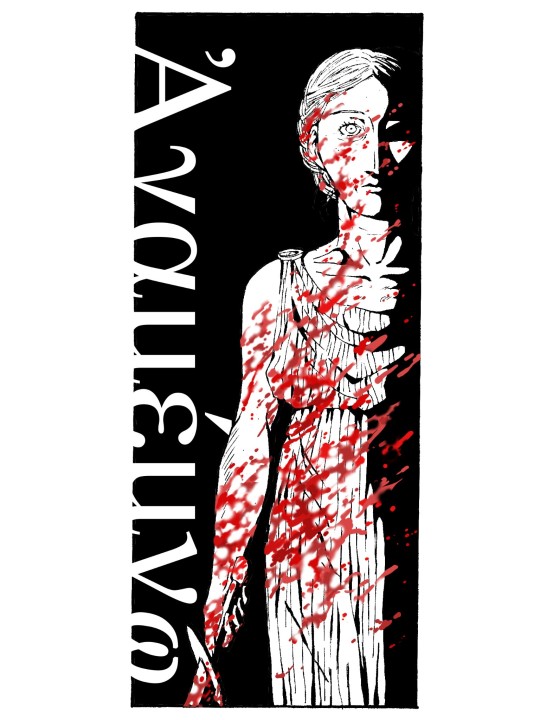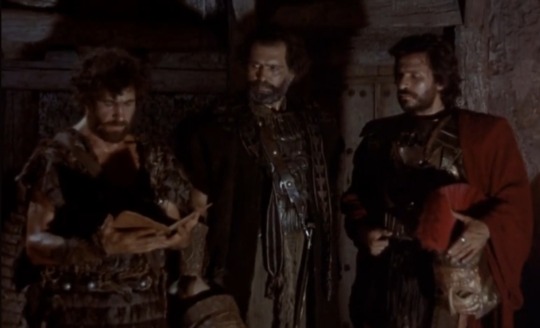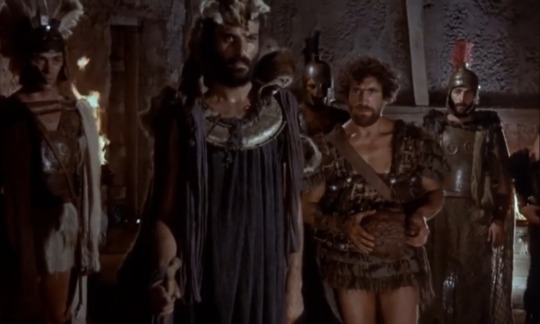#ancient greek tragedy
Explore tagged Tumblr posts
Text

Sophocles, from "Electra: A Tragedy," translated by Anne Carson
#lit#sophocles#anne carson#electra#words#sometimes i shock myself...#fragments#selections#ancient greek tragedy#p
14K notes
·
View notes
Text
I find it incredibly hilarious that in Aeschylus' "Eumenides" Apollo acts as a witness to Orestes and has the most lawyer energy ever 🤣 😆 like he wants to persuade the audience that Orestes is justified and to achieve that he speaks on how a father is the real parent and not the mother and says that "a father can exist even without a mother" and then uses fucking ATHENA as an example! 🤣🤣🤣 like he says "Zeus gave birth to Athena through his head so the father is the parent"
I just can't help but finding hilarious! 🤣🤣 and I can imagine Hermes in the background snickering at that or trying not to yell "dude what the fuck?!" 🤣🤣🤣
Apollo definitely works as a lawyer here hahaha 😆 😂 🤣 confusing the audience 😂
#greek mythology#tagamemnon#the orestia#oresteia#the oresteia#aeschylus#apollo#gods acting as jury#ancient greek tragedy#greek tragedy#orestes and apollo#orestes#athena#zeus#agamemnon#clytemnestra#greek mythology memes#random post#shitpost#sorry i had to say this#sorry i had to#lmao 🤣🤣🤣#“loxias” definitely gets a new meaning here! 🤣🤣🤣#athena goddess of wisdom#apollo god#hermes#hermes god#hermes greek mythology#apollo greek mythology#apollo greek god
269 notes
·
View notes
Text
The humans in Greek Mythology are the mega rich and powerful:

In my college classes people are often shocked when I tell them my favorite part of Greek mythology is the gods themselves and I'm not a big fan of the humans.
99% of my classmates prefer the humans in mythos, especially the ones that stick it to the gods like Sisyphus and feel bad for humans like Kassandra and Helen who have been wronged by the gods because "they're just like us." My classmates and teachers hate the gods and don't understand why anyone in modern times would want to worship such violent and selfish beings whenever I point out there are still people who worship them. They hold onto the idea that people in mythology embody the human experience of being oppressed by terrible gods and fate and we should feel bad for them because "they're human just like us" but they forget that the people in Greek Mythology are NOT just like us. They are more relatable to medieval royalty, colonizers and ultra rich politicians who make laws and decisions on wars and the fates of others, especially the poor and the very vulnerable.
Every hero or important human in Greek Mythology is either some form of royalty or mega rich politician/priest-priestess (of course this is with the exception of people who are explicitly stated to be poor like the old married couple in the myth where Zeus and Hermes pretend to be panhandlers). All of them have an ancient Greek lifestyle more relatable to Vladimir Putin, Donald Trump, and especially to British royalty during the British empire, than the average person.

All of them.
Odysseus, Patroclus, Theseus, Helen of Troy, Kassandra, Diomedes, Agamemnon, Perseus, Hercules, Aeneas, Paris, Any human who has a divine parent or is related to one, etc. Although sometimes the story omits it, it is heavily implied that these are people who own hundreds or even thousands of slaves, very poor farmers and the tiny barely there working class as royal subjects.
They are the ones who make laws and whose decisions massively affect the fates of so many people. So no, they can't just be forgiven for some little whim, because that little whim affects the literal lives of everyone under their rule. By being spoiled they've just risked the lives of thousands of people and possibly even gotten them killed like when Odysseus' audacity got every single slave and soldier in his ships killed or when Patroclus as a kid got upset and killed another kid for beating him at a game. (A normal person wouldn't kill another person just for winning a game but royalty and those who think they're above the law do it all the time, plus the class status of the child wasn't mentioned but the way he didn't think he'd get in trouble implies the kid was of lower class, possibly the child of a slave or a foreign merchant.)

The gods get a bad reputation for punishing the humans in mythology but, if not them, who else is going to keep them accountable when they are the law?
And whose to say the humans beneath them weren't praying to the gods in order to keep their masters in check?
Apollo is the god in charge of freeing slaves, Zeus is the god of refugees, immigrants and homeless people, Ares is the protector of women, Artemis protects children, Aphrodite is the goddess of the LGBT community, Hephaestus takes care of the disabled, etc. It wouldn't be surprising if the gods are punishing the ultra rich and powerful in these myths because the humans under their rulership prayed and sent them as they did historically.
Every time someone asks me if I feel bad for a human character in a myth, I think about the many lives affected by the decision that one human character made and if I'm being completely honest, I too would pray to the gods and ask them to please punish them so they can make more careful decisions in the future because:
They are not just like us.

We are the farmers, a lot of our ancestors were slaves, we are the vulnerable being eaten by capitalism and destroyed by the violence colonialism created. We are the poor subjects that can only pray and hope the gods will come and correct whatever selfish behavior the royal house and mega rich politicians are doing above us.
And that's why I pray to the gods, because in modern times I'm dealing with modern Agamemnons who would kill whatever family members they have to in order to reach their end goal, I'm dealing with everyday modern Achilles who would rather see their own side die because they couldn't keep their favorite toy and would gladly watch their subjects die if it means they eventually get their way. The ones that let capitalism eat their country and it's citizens alive so long as it makes them more money. These are our modern "demigods," politicians who swear they are so close to God that they know what he wants and so they pass laws that benefit only them and claim these laws are ordained by God due to their close connection just like how Achilles can speak to the gods because of his demigod status via his mother.
Look at the news, these are humans that would be mythical characters getting punished by Greek gods which is why anything Greco-Roman is jealousy guarded by the rich and powerful and is inaccessible to modern worshippers because Ivy League schools like Harvard and Cambridge make sure to keep it that way. That's what we're dealing with. These are the humans these mythical beings would be because:
In our modern times the humans in mythos would be the politicians and mega rich that are currently ruining our society and trying to turn it into a world where only the rich can manipulate wars and laws, just like they do in mythology.
Fuck them.

I literally have so much more to add about my disdain for them and I didn't even touch on the obvious ancient Greek propaganda.
536 notes
·
View notes
Text
POV when you’re about to correct someone who says “the ending for Odysseus is a tragedy”, but then realize that originally his story did, in fact, end with Aeschylus’s tragedy Psychagogoi, or Sophocles’s Odysseus Acanthoplex but we don’t talk about that one, where a heron smote him with its literal shit which rotted Odysseus’s old bald head and ended up killing him.
#odysseus#tagamemnon#aeschylus#greek mythology#still the wildest lore I’ve ever heard#ancient greek tragedy#psychagogoi#I honestly don’t know if this is better than the Telegony or worse#but anyways not a fan of either of them#lyculī crustula
41 notes
·
View notes
Text




🏜️✨
#art#poetry#words#rhetoric#dark academia#web weaving#light academia#philosophy tumblr#love#language#sphinx#oedipus#sophokles#sophocles#ancient greek tragedy#percy shelley#ozymandias#despair#spirit#sephiroth#strife#clouds#aerith#with#connect#connection
27 notes
·
View notes
Text



Peaky Blinders, 01.01;
Hippolytos, Euripides. Grief Lessons: Four Plays by Euripides in Anne Carson’s translation;
Peaky Blinders, 03.04.
#many cases of this but these two scenes came to mind most somehow#cursed to see fandoms in Ancient Greek texts#peaky blinders#pb#tommy shelby#hippolytos#anne carson#grief lessons#euripides#ancient greek tragedy#tragedy#steven knight#text#peaky blinders edit
16 notes
·
View notes
Text
Specifically, Odysseus embodies the morally questionable type of the σοφός. In tragedy the term has a range of meanings spanning from “clever” to “knowledgeable” to “wise”;19 but when it is applied to Odysseus, it never connotes moral wisdom except in Ajax (1374). In Philoctetes, Neoptolemos describes him as a σοφος παλαιστής (clever wrestler, 431) and understands that Philoctetes is speaking of Odysseus when he says, “formidable and σοφός with his tongue” (440).20 In this play Odysseus’ σοφία serves justice only if justice resides in success: on this view, which is Odysseus', Neoptolemus “will be called both σοφός and ἀγαθός if he accepts to deceive Philoctetes (119), σοφός for the stratagem, ἀγαθός for the sack of Troy.21 But Neoptolemus, as he comes to disallow Odysseus’ ethics of success, divorces the latter's conception of σοφία from any notion of justice. When Odysseus attacks him for neither saying nor proposing to do σοφά things, Neoptolemus fires back: ”But if they are δίκαια they are better than σοφά things“ (1245–46). Neoptolemus rejects σοφά things in the name of an ideal of justice that shuns deceit, regardless of its goal, and consequently charges Odysseus with being σοφός in the sense of clever, but not morally wise (1244: ”you are σοφός by nature, but what you say is not σοφόν. The tragic Odysseus does not hide that σοφία for him is no moral wisdom, when he tells desperate Hecuba: “It is sensible to have the thoughts that necessity demands even when fairing ill” (Euripides Hecuba 228: σοφόν τοι καν κακοῖς δεῖ φρονεῖν. Superficially this pronouncement might recall several passages in the Odyssey in which Odysseus shows himself aware of the mutability of human fortunes and of the necessity to adjust one's thoughts to it. In Odyssey 18, for instance, he warns Amphinomous, one of the suitors, against overconfidence, reminding him of man's exposure to reversals of fortune. Consider especially this sententious phrase: “and man bears it [misfortune] in sorrow, with an enduring heart” (I.135). But in that circumstance Odysseus is not a political winner; he is the one who is “fairing ill” and warns Amphinomous at his own risk, after having suffered insult after insult from other suitors. In contrast Euripides’ character is σοφόν thinking on his helpless victim, whom he has just notified of the Greeks’ decision to sacrifice her daughter Polyxena. Odysseus in Hecuba speaks “philosophically” to dress up his advocacy of Realpolitik, as he eventually reveals by using σοφός again to design the powerful (“if you obey those who are more σοφοί than you,” 399), and as Polyxena makes clear by rephrasing in plain language what Odysseus expressed in a pompous maxim of “wisdom”: “do not fight against those in power,” she tells her mother (404). - From Villain to Hero: Odysseus in Ancient Thought by Silvia Montiglio
13 notes
·
View notes
Text
The Oedipus Project (or, How Oedipus’ Historical Context Reveals the Play’s Meaning)

Sooo back in Spring 2020, Oscar Isaac starred in a Zoom production of Sophocles’ Oedipus Tyrannus — The Oedipus Project. I highly recommend watching the production. Oscar gives a uniquely genuine performance of Oedipus. Thankfully, @hupperts linked to the full livestream in a post (it’s a Google Drive link you can watch here).
But I would be remiss in talking about Ancient Greek theatre if I didn’t also share a few historical facets of the play (and of Greek Theatre in general) that are often overlooked in modern productions. (For context, my college major was Classical Theatre — with an emphasis on Ancient Greek theatre and Shakespeare. So Ancient Greek Tragedy is still a big special interest.)
The Original Actors:
In Sophocles' and Euripides' tragedies, there were only three actors (all adult men), plus a Chorus of fifteen young men, led by a Chorus Leader. (Aeschylus before them had two actors, plus a chorus of twelve young men.)
Since there are more than three characters in these plays, it was standard for several (if not all) of the three actors to play multiple roles. The roles that these actors played often relate to each other, creating many subtextual layers of connection and meaning between the characters.
Read more below the cut:
The Three Actors and the Chorus:
In Ancient Greek theatre, the lead actor was called the Protagonist. This was often the most senior actor and the one deemed most skilled.
The second actor was called the Deuteragonist. This actor often had less seniority than the Protagonist, though they were often deemed to be of equal skill level.
The third actor was called the Tritagonist. This actor was often the youngest and least experienced of the three, and they would often play Messenger roles.
The Chorus comprised a Chorus Leader, leading a Chorus of 15 young men. They chanted and danced in unison, with certain lines spoken/sung solo by the Chorus Leader.
Singing, Dances, and Masks in Ancient Greek Theatre:
Ancient Greek theatre was first and foremost a religious ceremony, dedicated to the god, Dionysos. The plays were written in meter, and the actors would have alternated between speaking their lines and singing the text. The Chorus performed circular dances, and they also sang and chanted their lines. The actors were accompanied by a musician playing a double-piped reed instrument called the aulos (the sound would have been similar to a modern-day oboe).
The three actors and the Chorus all wore masks and costumes. These masks were religious in nature — they permitted the actors and Chorus to interact with the divine nature of Dionysos (which was believed to be present on the theatre stage) without being overcome by the god. In Ancient Greek theatre, masks do not conceal; instead, they reveal the truth. The masks also served a practical purpose, allowing the actors to switch between their characters with relative ease.
The Roles Played by the Three Actors and Chorus in Oedipus Tyrannus:
Here is the original cast list from Oedipus Tyrannus (this is my reconstruction, based on exits and entrances).
1st Actor (Protagonist):
Oedipus (King of Thebes, who unknowingly murdered his father, King Laius, and who married his mother, Queen Jocasta; he became the new King upon defeating the Sphinx at Thebes by solving her riddle)
2nd Actor (Deuteragonist):
Priest (Priest of Apollo)
Tiresias (blind prophet and servant of Apollo)
Queen Jocasta (Queen of Thebes, unknowing wife of her son Oedipus, and former wife of King Laius, Oedipus' father)
Theban Shepherd (who saved the infant Oedipus from death and gave him to the Shepherd and Messenger from Corinth)
3rd Actor (Tritagonist):
Creon (Brother of Jocasta, Queen of Thebes, and unknowing uncle of Oedipus)
Corinthian Messenger (the Shepherd who brought Oedipus to his adoptive parents in Corinth)
Theban Messenger (the Messenger who delivered the news of Jocasta's death and Oedipus' blinding)
Chorus Leader, leading a Chorus of 15 young men:
The Elder Citizens of Thebes (the Chorus serve as the point-of-view character through which the audience is meant to intellectually and emotionally understand the play)
The Connections Between the Three Actors and Their Roles:
The Protagonist in Oedipus played one role: Oedipus. In Greek Tragedy, the lead role was deemed to be of such importance that the Protagonist was often given no other roles to play.
The Deuteragonist had to shoulder some of the most important moments in the play. They opened the play as the Priest of Apollo. They played Tiresias and then Jocasta, both wrestling emotionally with Oedipus. And finally, they played the Theban Shepherd, who is tortured into his confession of saving the baby Oedipus from certain death. The fact that the Deuteragonist portrays all of these roles provides a common thread between them, linking together characters who unknowingly lead Oedipus to his downfall.
The Tritagonist played Creon as well as the two Messenger roles. As the Theban Messenger, they would have been expected to deliver a dramatic and scene-stealing monologue about the death of Jocasta and the blinding of Oedipus, which would have given the younger actor some scenery to chew.
The Historical Context of Oedipus Tyrannus:
Something to note about Oedipus Tyrannus in the context in which it was written: the original meaning of the play is different from the Freudian themes that we normally associate with it. Freud took Oedipus and used it as an exploration of unconscious desires, but that wasn’t really Sophocles’ intent.
When Sophocles wrote Oedipus Tyrannus, Athens was beginning the second half of the great war with Sparta (the Peloponnesian War), which would ultimately lead to Athens’ downfall, as well as Sparta’s downfall not long after.
About 50 years prior, Athens and Sparta had fought together in the Persian Wars to prevent the Persians from conquering Greece (if you’ve ever seen the movie 300, that’s what it is about). But in the intervening decades, Sparta and Athens had become rivals for resources and land within Greece, and between 460 – 445 BCE, and 431 – 404 BCE, they fought two bloody wars that ultimately led to the defeat of Athens, and the end of the Athenian Democracy.
Many Athenians, including the playwrights Sophocles and Euripides, were incredibly nervous about this conflict, and foresaw that it would lead to prolonged bloodshed and even the city’s downfall.
For example, around the same time that Sophocles wrote Oedipus Tyrannus, Euripides wrote Medea, about a woman who murders her children to spite her husband — Euripides was effectively saying, “If these two powers of Sparta and Athens, mother and father, go to war with each other, all that we will succeed in doing is murdering our children (the young soldiers who will die in battle).”
Oedipus Tyrannus is about a king who wants to be a great ruler for his city, Thebes. And yet, he cannot know how to lead his city, for he does not even know himself.
Many years before the start of the play, he had defeated the Sphinx who had camped out outside Thebes’ city walls and was consuming the city’s inhabitants. She demanded that everyone who passed by her must answer her riddle. If they could not figure it out, she would eat them.
She asked them, “What creature walks on four legs in the morning, two legs at noon, and three legs in the evening?”
No one in Thebes could answer her riddle, and so one by one, she devoured them, simultaneously consuming the city’s soldiers and starving out the city’s inhabitants.
Around the time that the Sphinx was laying waste to Thebes, Oedipus was running from himself. Oedipus had received a prophecy that he would “kill his father and marry his mother,” so he left his city of Corinth and ran far away from his (adoptive) parents (though he didn’t know that he was adopted).
Along the way, Oedipus encountered an old man who attacked him at a crossroads. In anger, Oedipus killed the man, and kept going (unbeknownst to him, this was his father, Laius, the King of Thebes).
He soon happened upon the city of Thebes, and encountered the Sphinx. Like she had done countless times before, she asked Oedipus her riddle. But unlike the others before him, Oedipus used his intelligence and cunning to defeat her.
Oedipus understood what the Sphinx was asking, and he answered her riddle correctly. The answer is “man.” Man walks on four legs in the morning (crawling as a baby), on two legs at noon (walking upright in the prime of his youth), and on three legs in the evening (using a cane to walk in old age).
Oedipus knew “man,” but he did not know himself.
Still, the Sphinx was defeated, and Oedipus was welcomed into the city of Thebes as a hero. The old king had just died, and the city was in turmoil. They were looking for a new king. The old king’s brother-in-law, Creon, did not want the throne, and so the city decided to adopt Oedipus as their new king and leader. The Queen, Jocasta, willingly married this young man who had saved her and her city. They wed and had four children together: two sons, Polynices and Eteocles, and two daughters, Antigone and Ismene.
(Of course, these children would continue the twisted generational trauma of their family, as brother would turn against brother, sister against sister, and uncle against niece and nephew, until the family had consumed itself from the inside out.)
Oedipus’ Hubris:
Oedipus learns several important lessons from this incident. However, these lessons ultimately lead to his downfall:
1) He can defeat any enemy through argument, both in terms of aggression and cunning. He defeated the old man who attacked him (his own father) through aggression, and he defeated the Sphinx through cunning.
2) His intellect and reason are more powerful than even a superhuman force (the Sphinx), and he can threaten to banish or execute anyone who tries to challenge his understanding of things. He creates an echochamber from which he cannot escape.
3) He must continue to run away from his past, and never look at himself too deeply. He must never “know himself” or engage in any deep self-analysis because he believes that he is still running from the prophecy. He doesn’t realize that he already fulfilled the prophecy years before, and soon his punishment will come due.
In his Oedipus Project performance, Oscar did a masterful job at making Oedipus' guilt clear, and at laying out his hubris. Oedipus’ anger and insistence in his own righteousness ultimately bring him down.
Oedipus' haughtiness is a protection against the fear and inadequacy he feels in his life. He has felt like an outsider for much of his life, and he is overcompensating for that. He feels that he must prove himself right in all arguments, because deep down, he knows that he’s not who he thinks he is.
Oedipus is terrified to look at the “truth,” because he suspects that he'll be looking in a mirror.
The downfall of Oedipus is that he resists the truth of himself that is staring him in the face. He won't see until he literally blinds himself, and then when he is blinded, he can finally see, but by then it is too late.
Athens’ Hubris:
Like Oedipus, Athens believed it could defeat any enemy through cunning and aggression. Years before, it had decisively routed the Persians in the Battle of Salamis, driving the Persian forces away from Greece and ending the war. In the same way, it believed that it could use cunning and aggression to defeat Sparta. Sparta and Athens were like mirror selves. They were the two parts of the whole that made up what it was to be Greek.
Like Oedipus, Athens’ rulers were hubristic, and believed that they could know what was best for all of Greece, and yet they didn’t even know what was best for their own city.
Thebes, Oedipus’ city, had sided with Persia during the Persian Wars. During the Peloponnesian War, it sided with Sparta. To the Athenians, Thebes was the Anti-Athens. But by basing this critique of Athens in a city that was seen as an enemy, Sophocles was effectively looking at Athens “through the mirror,” and recognizing that self and reflection of self are two parts of the same whole.
So, unlike the modern Freudian characterization of Oedipus, Sophocles’ intention was to explore the way that a political entity can become entirely corrupted by its leaders. These leaders argue themselves in circles, round and round, until they eventually come face to face with themselves. In that moment, it is shown that they have not been fighting against any external enemy, they have been destroying their own city from within, and in their own immolation, they burn the city as well.
Oedipus Tyrannus is a great exploration of generational trauma — it shows in microcosm the way that toxic dynamics are passed down over and over to create an inheritance of destruction. If Jocasta and Laius had loved their son despite Apollo’s prophecy, if they had sought to wrestle with the god instead of blindly following him, if they had treated their son with care instead of piercing his ankles and leaving him on a hillside to die, their downfall and his would never have occurred. Their compulsion towards the very predeterminism they feared sealed their fate.
In the same way, Athens' and Sparta's fear and enmity towards each other ultimately led to Athens' downfall and Sparta's decline not long after. In trying to destroy one another, Athens and Sparta learned far too late that they were only destroying themselves.
The Anti-War Message of Ancient Greek Tragedy:
Ancient Greek Tragedy dealt with deeply human themes, such as psychology, philosophy, religion, politics, and art. Above all, it dealt with what it is to be a nation at war.
The Athenian Democracy was bookended by two great wars: the Persian Wars, which culminated around 480 BCE, and the Peloponnesian War, which concluded in 404 BCE when Sparta defeated Athens.
Within that span of roughly 80 years, the Greek playwrights engaged in a complex discourse, addressing their existential feelings of being a society defined by both internal and external conflict. They warned about the horrors of war, and they strove to use their art to steer the ship that was Athenian Democracy.
When we understand Ancient Greek Tragedy within its historical context, we can see that it is just as relevant today as it was when it was written over 2400 years ago.
#oscar isaac#the oedipus project#oedipus rex#ancient greek tragedy#ancient greek theater#oedipus tyrannus
120 notes
·
View notes
Text
pylades and orestes were lovers. i will not elaborate
4 notes
·
View notes
Text

36 notes
·
View notes
Text

Sophocles, from "Electra: A Tragedy," translated by Anne Carson
254 notes
·
View notes
Text

Christos Tsagas, Kostas Kazakos and Kostas Karras
As Odysseus, Agamemnon and Menelaus
In Iphigenia (1977)
You can't find a better trio! They look amazing together! Even their heights are perfect! Tsagas is simply Odysseus! Straight out! He was arguably the shortest of the team and corresponding to the description of Homer being like a ram (curly hair and proud posture) and very well built seemingly wider than Kazakos even! Moreover, Tsagas was born in 1939 making him 38 in 1977 when the movie came out! He is simply perfect!
Here's another image with him next to Dimitris Arronis as Calchas and Panos Michalpoulos as Achilles:

Gotta love the cultural details how Odysseus removes his hat within the conference room to show respect the same way that our men remove their hats in churches or during sacred moments (ex. Funerals) to show how he respects the process as well as Calchas as a prophet for his position.
#greek mythology#tagamemnon#odysseus#the odyssey#homeric poems#the iliad#odyssey#iliad#iphigenia#iphigenia 1977#christos tsagas#dimitris arronis#kostas kazakos#kostas karras#michalis kakogiannis#Cacoyannis#iphigenia in aulis#euripedes#ancient greek tragedy#greek tragedy#iphigenia 1977 is the pique of mythology adaptation!#greek culture#greek culture done right!#menelaus#agamemnon#calchas#achilles#agamemnon and menelaus#odysseus and agamemnon#odysseus and menelaus
209 notes
·
View notes
Text
The chess game between Medea and Jason and how Medea's original story is a feminist story:
So a few days ago I was talking to @teawiththegods about a book he had read that was a feminist re-telling of Medea. The author seemed to have lacked a very fundamental understanding of Medea's character because Hecate wasn't mentioned in the book at all, which is wild since Hecate is Medea's go-to goddess for every spell she does!
But as we talked further it was clear the author also lacked a very fundamental understanding of Medea and Jason's relationship towards the end of their separation but it's one of my favorite parts of Medea's story which, in my opinion, makes it feminist by itself but not many people understand that because they lack the ancient context for which it was written that drives the point that:

Medea won a chess game where the odds were stacked in favor of Jason and the game was rigged against Medea herself:
How were the odds of the game stacked in favor of Jason:
1) Medea couldn't kill Jason or he'd win:
One of the main things people complain about regarding the story of Medea is Medea killing her children and wonder why she didn't just kill Jason instead. But the reason why she didn't do that, and why she couldn't kill Jason at all was because she would have immortalized Jason's heroic persona.
In ancient Greece they believed the best thing someone famous could do was die at the height of their popularity so they wouldn't have time to ruin their own reputation and legacy. At the beginning of Euripides's Medea, Jason is at the height of his popularity. This is evident by the king of Corinth wanting him to marry his daughter because he was the legendary Jason from Jason and the Argonauts (the ancient equivalent of being the modern leader of the Avengers since he also assembled legendary heroes in his ship like Hercules and Orpheus).
Jason knew he had the upper hand and if Medea killed him, he would forever be remembered as a hero who was tragically killed by his jealous wife (in the same way Agamemnon was killed by his own wife Clytemnestra) and Medea herself already had a bad reputation for killing her own brother, despite her only doing so to help Jason escape her father.

2) If she killed Jason, her own children would have to kill her:
Her children would be bound by the gods to kill her and if they did kill her, the furies would come to torment them for killing their own mother.
In Aeschylus's Oresteia, written a good 20 plus years before Euripides's Medea, One of the main tragic points in the story was Orestes being duty-bound to avenge his father which meant he had to kill his mother. In ancient society this was a rule. Children, especially sons, needing to avenge their parents, especially their fathers, so Jason knew that if Medea killed him, not only would she ensure his heroic legacy, but the ones in charge of carrying out his revenge were his sons, the keepers of his legacy, who were also the great-grandchildren of Helios (Medea's father was his son).
Medea preferred living with the guilt of killing her own children rather than the thought of forcing her own children to kill her and be forever tormented by the furies if they did, or be punished by the gods for not avenging their father if they did not. She had already killed her own family member for Jason before, so killing again for Jason would be a type of dramatic irony that now also affected him.

3) If she did nothing Jason would still win:
When I say Jason had everything, I mean he had everything. He was going to become the king of Corinth and live his life as a hero.
Medea is the reason behind him getting the golden fleece and she is the power behind all of his success and he was going to take her credit and cast her out of his new kingdom along with their children. He didn't care if his children were going to be bound to a woman who had a cursed reputation and be doomed to living a life of extreme poverty. He only cared about getting rid of his previous family to make room for a royal family, in his opinion, a proper life fit for a hero. He was Hera's favorite and even Medea could see that he had insulted Hera (the goddess of marriage) by not honoring his own marriage vows to her. Jason was being selfish and Medea couldn't let him just get everything he wanted.
Imagine working so hard to help someone you loved and trusted and you sacrifice your own comfortable and cushy life only for them to steal your credit, take all of your stuff and curse you to a life of poverty, and despite how he fucked you and your children over, your children still had to praise their father because they are bound to his legacy! He is the reason why you are irrelevant and no one will ever remember you except as a stepping stone for HIS success!

Jason took Medea's credit, used her as a stepping stone to reach his heroic status and had children with her who were a part of taking care of his legacy and bound to avenge him if she killed him. But if she chose not to do anything to him he would win either way and his legacy was set to be praised forever, this time as a king who could continue to expand his legacy and potentially turn into a god like Hercules. There was nothing she could do about it.
How she won and ruined his legacy and reputation:

1) Using her status as Jason's property:
Like most ancient Greek women, Medea was seen as Jason's property which made her his responsibility.
A lot of people think it was unnecessary for her to have killed the princess of Corinth because it wasn't the princess's fault who her father wanted her to marry but Medea was trying to kill the king of Corinth himself and she knew he was going to hold his dying daughter without realizing he too would get killed through the poisoned garments. Plus Medea knew the princess of Corinth wanted to exile her children with her and doom them to a tragic life which is why she sent her children with gifts from Helios in order to beg the princess to change her mind about exiling them.
What would killing the king and his daughter do to Jason? He would be blamed for not knowing how to "handle" his woman and "control" her, as was expected of men back then. Her outbursts were his responsibility.
Her killing the leader of Corinth and his only successor made Corinth vulnerable for another kingdom to invade. As Jason's property this made Jason the reason behind Corinth's downfall, thus causing Jason to be known as a cursed hero who will ruin your city-state if you try to associate with him or even welcome him into your home.

2) Jason depended on his children to fix his reputation:
Did Medea have to kill her children? Yes, because she knew that if she didn't whether they wanted to or not, they would undo everything she had done to ruin him because when ancient Greek people did well their fathers would also be praised because their father's names were used as a last name for the child for example: Odysseus's full name is actually Odysseus son of Laertes and thus in the ancient world whenever you praised Odysseus you were also praising his father Laertes.
Similarly, Jason's children had a duty to fix their father's reputation which means that if she allowed them to live, they would also do their best to uphold his reputation and undo everything and Jason would still win. Even if they didn't like him or they didn't' want to they had to. Plus already being the great-grandchildren of Helios, the sun itself meant they were already great, which meant their father was already great because they had "son of Jason" attached to their names as a last name.
So imagine your ex has ruined your life because before he came into your life you were the princess of Colchis, the granddaughter of the sun itself, your father was a demigod and your aunt was Circe! The same Circe who turned Odysseus's men into pigs. You had everything and you left your glamorous life because you fell in love with someone who stole your credit, used your ancestral connections to Helios and ultimately betrayed you. And now that you found a way to ruin him in order to avenge yourself, your own children, regardless of their own complicated feelings towards their father would have to undo everything you did and uphold his legacy as a hero so he still won. But killing them would ensure your ex will be seen as a walking bad omen and ruin his reputation forever.

3) Killing her children sealed Jason's fate:
Jason never expected Medea to kill her own children, no one did because no woman had ever done that before but Medea herself was already a walking curse, she knew that if she killed her children the world would pity them and never blame them for what she did but if she allowed them to live they would be at odds with her because of how society favored fathers plus she also risked ruining their reputation and living a miserable life anyway because of her own reputation.
Being exiled meant they would potentially have faced a lot of SA as children who are doomed to wander and potentially live as slaves if they got kidnapped. Medea herself would have to be a sex worker if she wanted to make money to support her children as a single parent while Jason lived a glamorous life as the king of Corinth.
If she killed Jason they would have to kill her no matter how much they loved her or they would be cursed by the gods.
If they live they would automatically fix Jason's reputation if they gained glory and would have to blame their mother in order to explain why their father, the hero, was cursed. No one would care that Jason stole her credit and she was angry about it because they were married and according to their customs, she is his property and her credit is his credit.
But if Medea killed them, they would not be blamed for anything, they wouldn't be used as pawns to fix Jason's reputation and Jason would also be blamed for not knowing how to "handle" his wife and save his children, and Medea would finally get the revenge she has been wanting for every wrong Jason has ever committed. He would finally feel the pain she felt from his betrayal. He would finally feel as helpless as this game of chess made her feel. He would finally suffer in the way he made her suffer.

In the end she cursed him to live a life where his reputation was ruined and when he finally became irrelevant, he died being killed by the rotting wood of the very same ship which once made him great.
Checkmate.

#Medea#greek gods#greek mythology#greek myths#jason and the argonauts#Jason#jason and medea#greek tragedy#ancient greek tragedy#long post
152 notes
·
View notes
Text
‘Atreidae this and Atreidae that. Why don’t they just AtreiDIE?’
- Ajax son of Telamon
#classics memes#tagamemnon#ancient literature memes#ancient greek#sophocles#Ajax#Sophocles’ Ajax#ancient greek tragedy
18 notes
·
View notes
Text




23.09.23 | Greek Tragedy in Translation
Pics from The Eumenides, showing the Furies, Oreates and Athena
Last night I finished watching the 1983 National Theatre 4 production of Aeschylus' Oresteia trilogy, translated into English by Tonny Harrison. Absolutely spellbinding--the uncannily expressive masks, the beating background and sharp twisting musical cries together with the highly alliterative translation by Harrison gripped me through the screen and brought the ancient Greek theatre to life.
The full trilogy can be viewed with EN subs on YT here:
Agamemnon Part 1 | Part 2
The Libation Bearers
The Eumenides
3 notes
·
View notes
Text
WAKE UP BITCHES THEY FOUND NEW EURIPIDES FRAGMENTS
98 LINES, 80% COMPLETELY NEW MATERIAL
#Euripides#greek tragedy#classical studies#ancient greek#tagamemnon#archaeology#classics stuff#local queer classicist posts
19K notes
·
View notes